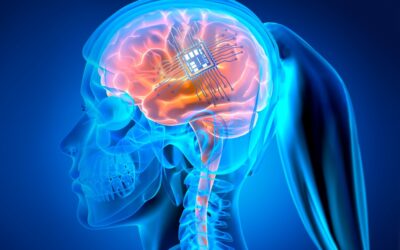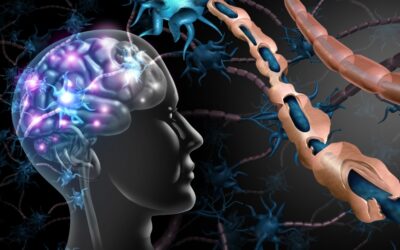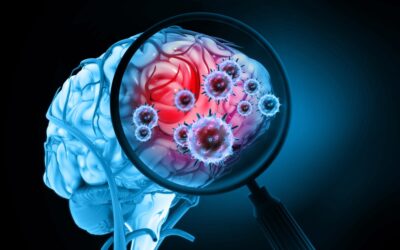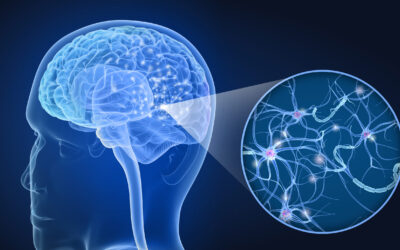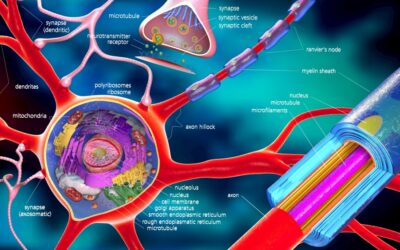Studies have shown that diets high in animal protein may help to prevent neurological conditions such as Alzheimer’s disease and Parkinson’s disease. Furthermore, there is a growing body of evidence that animal protein might be the key that unlocks the door to health span (number of years a human remains free of disease and disability). In this article we will review the compelling evidence as to why someone might want to consider eating more animal protein.
Animal Proteins and Neurologic Conditions
Animal protein is particularly rich in vitamin B12, which is essential for the proper functioning of the nervous system. Vitamin B12 deficiency has been linked to neurological conditions such as dementia and cognitive decline.
Animal protein is also a good source of omega-3 fatty acids, which have been shown to have neuroprotective effects. Omega-3 fatty acids are important for brain health and may help to prevent neurological conditions such as depression, anxiety, and Alzheimer’s disease.
However, it is important to note that excessive consumption of animal protein can have a negative impact on the kidneys. Furthermore, a diet high in animal protein that is also high in carbohydrates has been linked to heart disease and poor health outcomes. Therefore, it is important to consume animal protein in moderation, choose lean sources of protein, such as chicken, fish, and lean cuts of beef, and minimize carbohydrate intake.
Animal Protein and Aging
Animal protein might improve health span because it is a rich source of essential amino acids, vitamins, and minerals that are important for maintaining muscle mass, bone density, and overall health as we age.
As we age, our bodies become less efficient at building and maintaining muscle mass. This can lead to a condition called sarcopenia, which is characterized by a loss of muscle mass and strength. Consuming adequate amounts of protein, including animal protein, can help to prevent sarcopenia and maintain muscle mass and strength.
Animal protein is also a good source of calcium, which is important for maintaining bone density and preventing osteoporosis. As we age, our bones become more fragile and are more susceptible to fractures. Consuming adequate amounts of calcium, along with other bone-building nutrients such as vitamin D, can help to maintain bone density and prevent fractures.
In addition to its muscle- and bone-building benefits, animal protein is also important for overall health as we age. It is a rich source of vitamins and minerals that are important for maintaining a healthy immune system, preventing chronic diseases, and supporting cognitive function as stated above.
As with the previous section, it is important to reiterate that one should consume animal protein in moderation and to choose lean sources of protein, such as chicken, fish, and lean cuts of beef. Excessive consumption of animal protein can contribute to kidney damage.
Articles you may be interested in:
Simple versus Complex Carbohydrates
Carbohydrates are one of the three macronutrients that make up the foundation of our diet, along with protein and fat. They are found in a wide variety of foods, from fruits and vegetables to bread and pasta. Despite their importance in our diet, carbohydrates have...
Brain Health and Recovery: Food IS Medicine
Brain Health and Recovery: Food IS Medicine Food can be an excellent tool to enhance brain health and recovery. However, if you thought the brain was a complicated system to understand, the data on nutrition is far more complicated. So, spoiler, there is no “perfect...
BDNF And Stroke Recovery
Stroke can cause long lasting disability due to nerve cell (neurons) death greatly impacting someone’s overall quality of life. The neuron death can cause problems with mobility, balance, sensation, speech, vision, cognition (thinking), comprehension (understanding),...
Brain Derived Neurotrophic Factor (BDNF) and Brain Health
Brain-derived neurotrophic factor (BDNF) is a protein that aids in cell function and promotes the growth of new nerve cells (neurogenesis). Studies have shown that BDNF plays a critical role in neuroplasticity (the brains ability to build new nerve connections) and...
Neuroinflammation: Implications in Brain Health and Disease
Neuroinflammation is a broad term that is characterized by an immune response in the central nervous system (CNS) - the brain and spinal cord. This abnormal immune response is initiated by cues including infection, bacteria, brain injury, toxins and autoimmunity. ...
Mitochondrial Dysfunction in Multiple Sclerosis
Multiple sclerosis, also known as encephalomyelitis disseminata is a neurodegenerative disease characterized by damage to the white matter in the brain and spinal cord (central nervous system. The mitochondria are implicated in MS disease progression. With that said,...
Mitochondria: Key to Brain Health
Within every cell of the human body is a pool of structures called mitochondria, often referred to as the “powerhouse” of the cell (generating 90% of the body’s energy). In recent years mitochondria have been credited for brain health and optimal performance. On the...
Exercises to Lift a Stiff/Heavy Leg
https://youtu.be/4Op-qbT4yjo Following a neurologic injury, some people experience a leg that feels stiff, heavy, or both. This can make walking difficult. In this video, you will learn the best exercise routine to relearn how to lift the leg more efficiently and...
Dysphagia after stroke
Dysphagia After A Stroke Over 50% of patients are affected by dysphagia after stroke. It is typically characterized by the inability to swallow liquids or foods and can lead to choking. Patients usually tend to recover from post-stroke dysphagia within the first week...
How Old Is Too Old?
You are never too old to set another goal or to dream a new dream. -C.S. Lewis How old is “too old”? I am often curious about this question. Especially when I hear statements like “I am too old to change”, “this is the way I have always been”, “maybe when I was...




